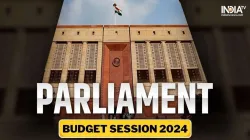To incentivise the manufacturing sector and generate employment, the government may extend the scope of the PLI scheme to include sectors like garments, jewellery, and handicrafts in the upcoming interim budget, Deloitte said.
Rajat Wahi, Partner at Deloitte India, emphasised that the PLI scheme is crucial for sectors like leather, garments, handicrafts, and jewellery, as these are significant employment generators.
"Today we have 14 sectors under the PLI scheme, but a lot of these sectors do not generate massive employment. Leather, garments, handicrafts, and jewellery, many of these sectors need the PLI scheme to come in because they are the ones that generate the most employment. That will help lower-income households as well as urban," said Wahi.
Deloitte's budget expectations report suggests that the government might introduce measures to support sustainable growth in income for rural households, thereby enhancing disposable income in the rural economy. The report recommends expanding the PLI scheme to additional sectors like chemicals and services to stimulate manufacturing demand.
"One of the ways could be higher spending on building rural infrastructure or providing incentives that improve cash flow... Broadening the scope of PLI schemes to sectors such as chemicals and services can create demand for more manufacturing," Deloitte said.
The PLI scheme, introduced in 2021, covers sectors such as telecommunications, white goods, textiles, medical devices, automobiles, specialty steel, food products, solar PV modules, advanced chemistry cell batteries, drones, and pharmaceuticals, with an outlay of Rs 1.97 lakh crore. The scheme has attracted significant investment, with over Rs 1.03 lakh crore invested until November 2023, leading to production and sales of Rs 8.61 lakh crore and the generation of over 6.78 lakh jobs.
Deloitte said that PLI schemes are also needed for space tech startups to boost local manufacturing and encourage capacity building within the country. Such schemes can incentivize domestic production and attract investments by providing financial incentives based on manufacturers' output.
The interim budget for 2023-24 is scheduled to be presented by Finance Minister Nirmala Sitharaman on February 1.
(With PTI inputs)
READ MORE: Budget 2024: Key differences between interim and regular budget
READ MORE: Budget 2024: Key terms you should know before the announcement
